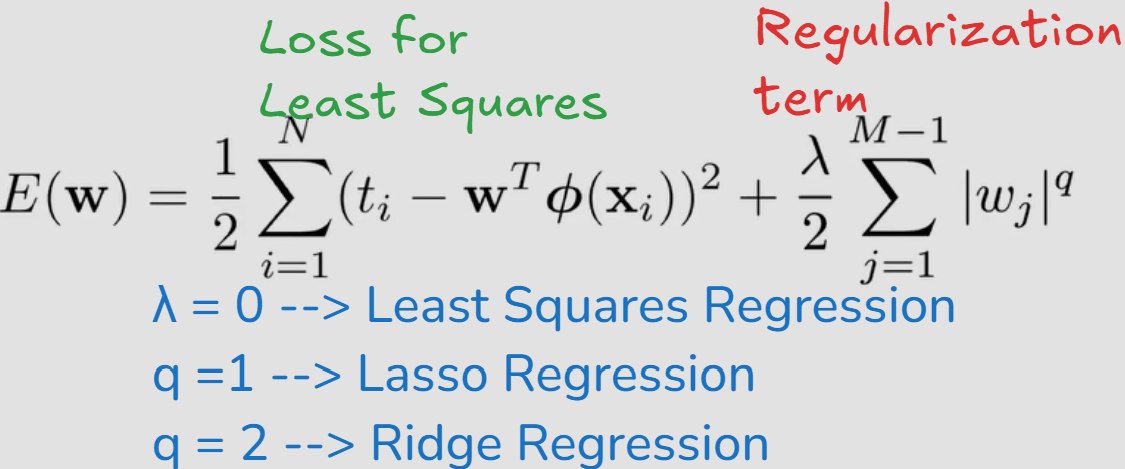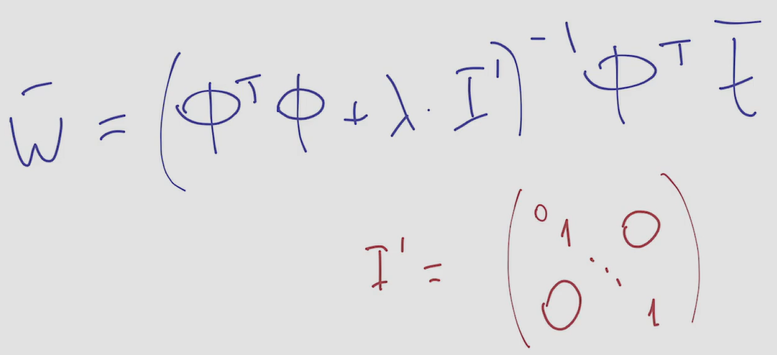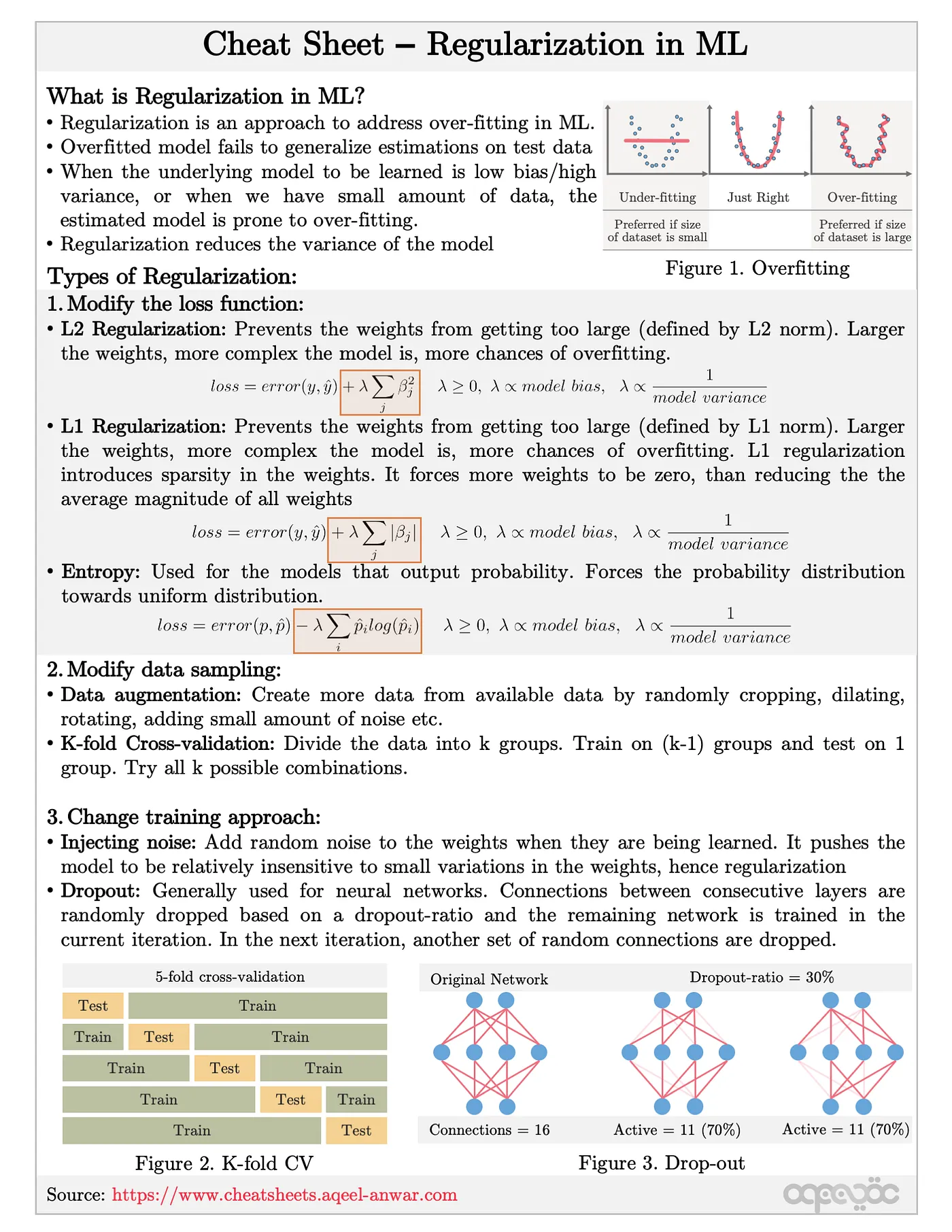regularization
scroll ↓ to Resources
Contents
- Note
- Regularization for shallow models
- [[#Regularization for shallow models#Methods|Methods]]
- [[#Methods#Lasso (L1)|Lasso (L1)]]
- [[#Methods#Ridge|Ridge]]
- [[#Methods#ElasticNet|ElasticNet]]
- [[#Regularization for shallow models#Methods|Methods]]
- Regularization for deep neural networks
- Resources
Note
- regularization is used to regulate model complexity and help fight overfitting or multicollinearity
- it leads to increasing the error on the training set and decreasing the error on the validation set
- there are methods, which modify the loss function and the ones, which modify data like data augmentation
Regularization for shallow models
- normalization is required for most algorithms
Methods

- λ is a hyperparameter and needs to be adjusted from experiments
- Minimizing the sum of two functions
Lasso (L1)
- Lasso (L1) - punishes non-zero coefficients ⇒ some coefficients go to 0
Ridge
-
Ridge (L2) - punishes large coefficients ⇒ makes model robust to small changes in input data, well differentiable
-
Minimization task becomes a sum of the loss function and the squared weights:

-
Minimizing the above yields the solution for weights w:

ElasticNet
- ElasticNet (L1+L2)
Regularization for deep neural networks
Resources
Cheat sheet
